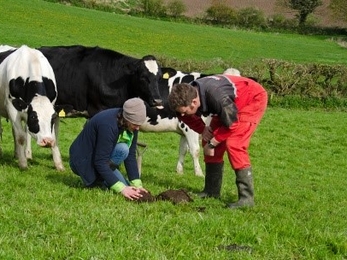In Cornwall, 70% of land is farmed, so working together with farmers to protect and enhance wildlife in Cornwall is vital. Cornwall Wildlife Trust has been working with the farming community for the past 10 years as part of South West Water’s Upstream Thinking project. Upstream Thinking is an award-winning partnership which uses a collaborative approach to improving wildlife, water and soil quality in local water catchments across the South West.
Over the past ten years, Cornwall Wildlife Trust’s experienced farm advisors have built trusting relationships with the farming community. This spring, the Upstream Thinking team are helping farmers and landowners manage and sow more than 800 acres of herbal leys across Cornwall. But what exactly are herbal leys, and why are they becoming more popular on farms across Cornwall?

